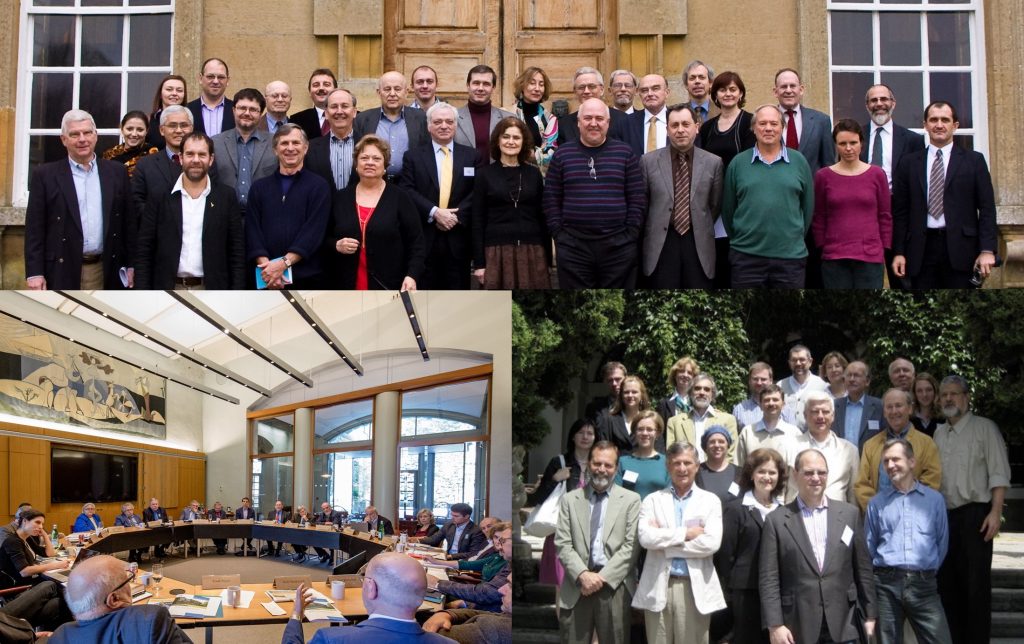Alti Rodal: "I believe that truth and empathetic understanding of the traumas experienced by both Jews and Ukrainians fosters healing."
[Editor's note: Ukrainian Jewish Encounter's Co-Founder and Co-Director Alti Rodal discusses the organization's beginnings, purpose and the "Shared Historical Narrative" project in an interview with the scholarly journal Ukraina Moderna.]
Alti, could you please tell us how and when the idea of the project "Shared Historical Narrative" was born?
The idea emerged from discussions among the four founders of the Ukrainian Jewish Encounter initiative (UJE) in 2007–2008 — James Temerty, Adrian Karatnycky, Berel Rodal, and me. Our focus was on how to advance mutual understanding, empathy, and solidarity between Jews and Ukrainians. We considered that key barriers were the conflicting narratives and stereotypes entrenched in the two communities over four and more centuries, shaped by unsettling changes, the influences of ruling regimes, and the episodes of extreme violence during the twentieth century in particular. To come to grips with these barriers, we convened in 2008 select scholars and community leaders from North America and Ukraine, to think together about how best to act. A range of initiatives and projects were identified, including the idea of expert roundtables at which authoritative scholars and thought leaders, drawn from diverse backgrounds, would discuss and help establish, as authoritatively as possible, the historical context, trends, and events that shaped the Ukrainian-Jewish relationship over the centuries. The UJE team designed a plan and process around this idea, which developed into the Shared Historical Narrative (SHN) project.
"The continuing purpose of the project is to advance an empathetic, evidence-based record and story of the side-by-side lives and relations of Jews and Ukrainians, including both the extended periods of peaceful co-existence and the times of crisis."

Could you acquaint us with the purpose, objectives and concept of this project?
The continuing purpose of the project is to advance an empathetic, evidence-based record and story of the side-by-side lives and relations of Jews and Ukrainians, including both the extended periods of peaceful co-existence and the times of crisis. The purpose flows directly from the core mission of the Ukrainian Jewish Encounter initiative, which is "to deepen understanding of the breadth, complexity, and diversity of Ukrainian-Jewish relations, both in the home territory and in lands of resettlement" and "to more firmly secure the foundation for building modern identities and solidarity between the two peoples, based on an authentic connection to the past."
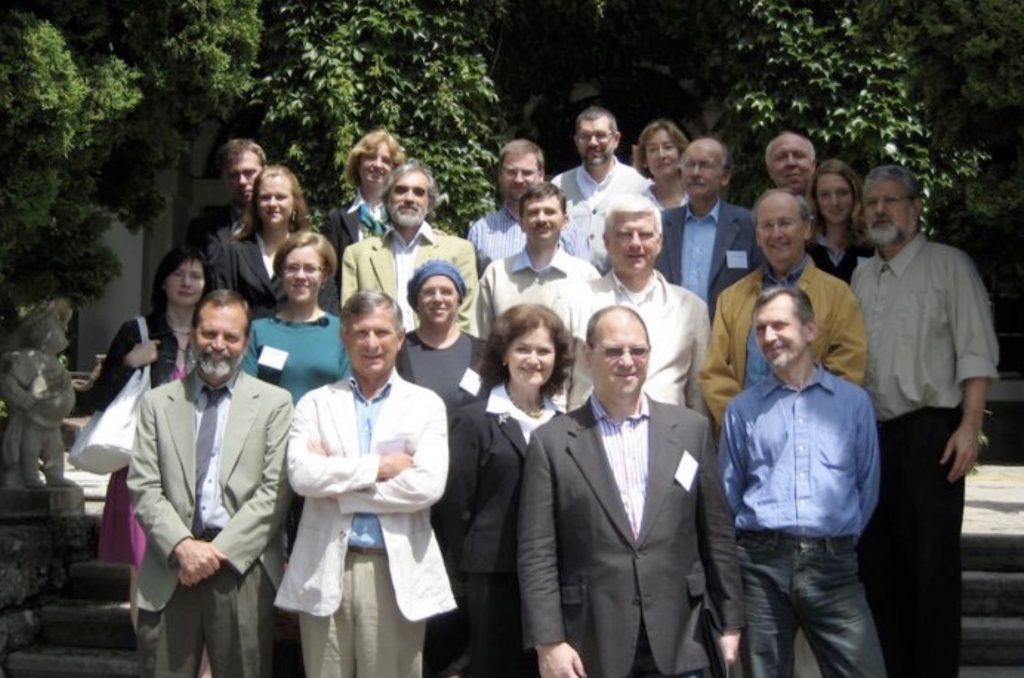
The specific overall objective of the roundtable meetings is to create a single text which authoritative, acknowledged experts agree is faithful to facts and encompasses the range of fact-based perspectives and interpretations that need to be considered. A successful outcome would be a historical account that earns acceptance and legitimacy, and that may serve as a reference source for educators, commentators, leaders and general readers.
To serve in deepening understanding and solidarity, the resulting shared history would need to accomplish the following, honestly and lucidly:
- address and help dissolve entrenched stereotypes;
- articulate and connect the differing perspectives on contested issues;
- make salient the rich cross-cultural interaction between Jews and Ukrainians; and
- make manifest the extent to which the history of Jews in Ukraine is an integral part of Ukrainian history.
Among the key criteria identified for enabling a successful outcome, the foremost is professional respect for the historical evidence, a necessary condition for credibility and legitimacy. A related criterion is capturing the complexity of the history, which means recognizing the wide range of interactions, the diversity within each community, and the broader context of eastern and central European history and politics that shaped Ukrainian-Jewish interactions. By extension, this includes consideration of the different regions, the different regimes under which Ukrainians and Jews lived, and their interaction with third parties — in particular the peoples who constituted the politically dominant cultures and exercised state power during formative periods. These include Poles, Russians, and Austrians, and those who influenced events during times of crisis, such as Germans, Romanians, and Hungarians.
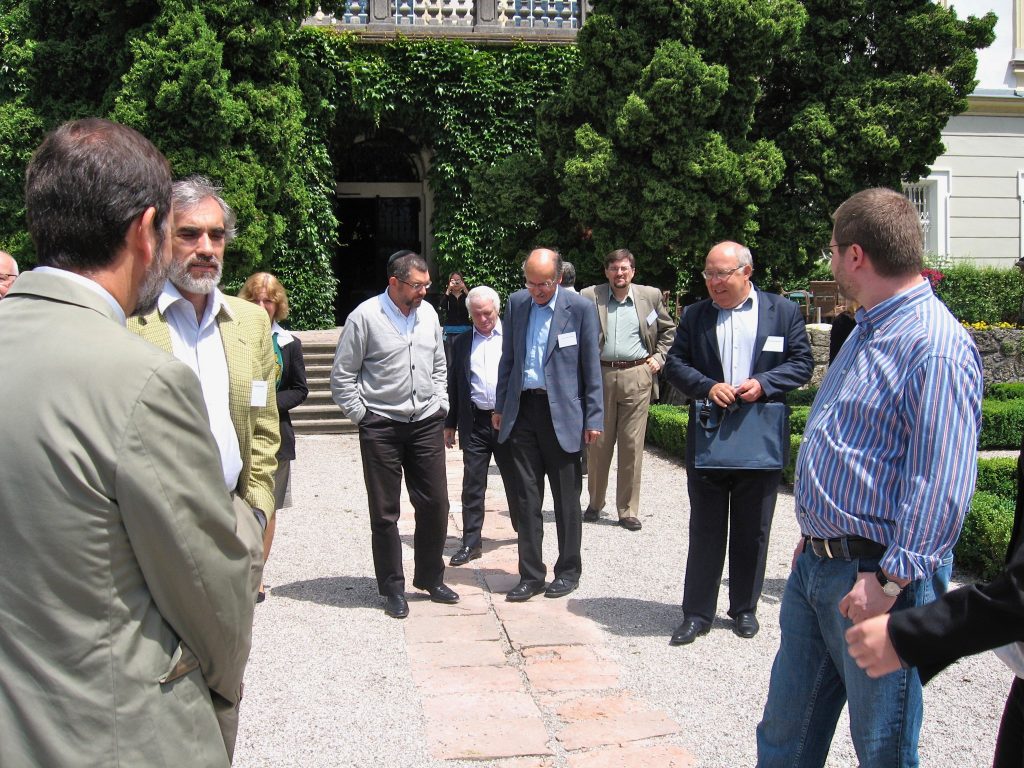
It may be helpful to keep in mind what the shared narrative is not. It is not a rehearsal or refinement of polite fictions, nor is it an element in a "reconciliation" exercise that aims to negotiate divides between conflicted parties. The aim is to dispel myths and stereotypes that affect perceptions today, and to enrich and deepen how we think of each other and ourselves. It is not about eliding over fact and evidence in order to render the past invisible, or palatable, but rather to engage with the past, to give a proper hearing to the range of perspectives, and to enable acknowledgment and healing. It is about creating space for people identifying on national, ethnic or other markers to see that their perspective is taken into account, where each can acknowledge that there are legitimate other perspectives and move beyond nursing grievance. Openness and diversity in historical representation are needed and productive. Distortion and apologetics are unproductive and detrimental to UJE's purposes.
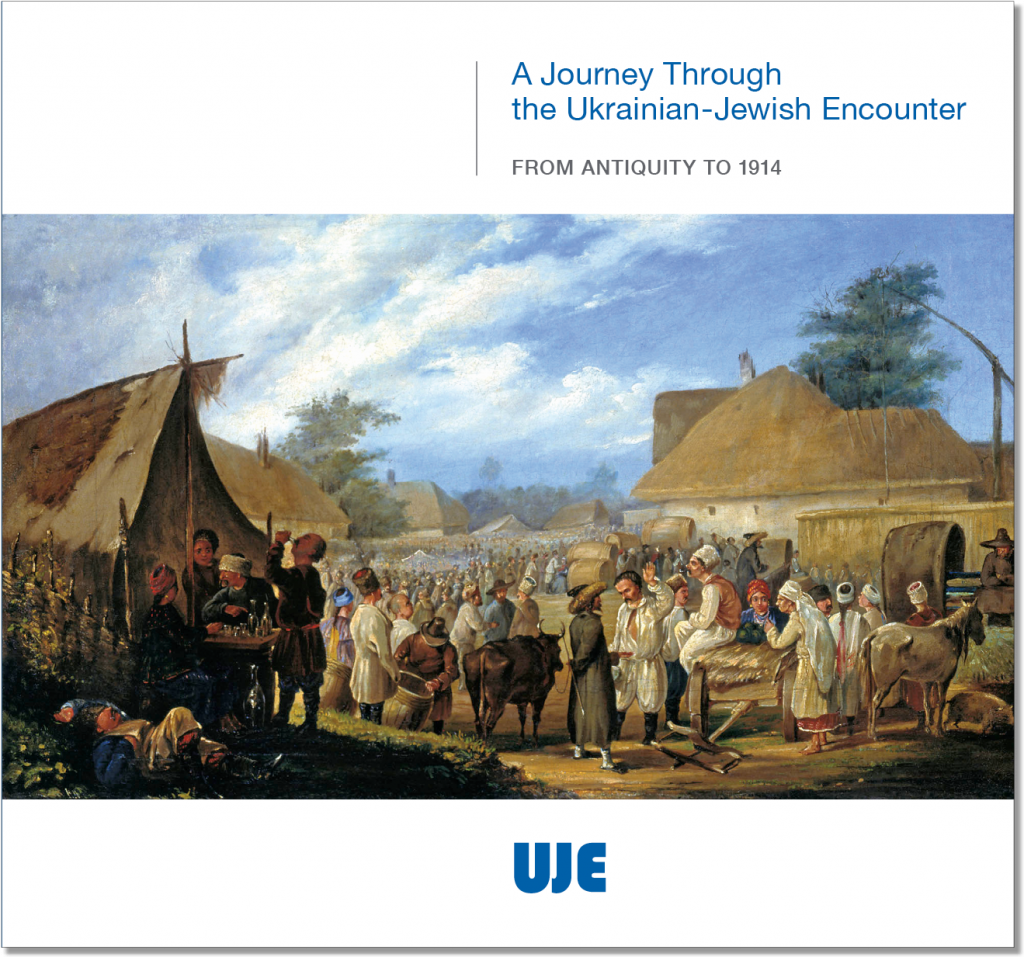
Does this project have mainly an academic focus, or does it also contain an educational component and a public history?
Serious scholarship is the foundation of the shared historical narrative project, but its object is not scholarly or academic. The intended audience is society rather than the academy.
The more specific aim is to provide a proper foundation for UJE products and activities geared to education and outreach. These include multimedia exhibits — such as toured across Canada in 2015 and had an inaugural tour in Ukraine in 2019; public panels and events — such as those noted on the UJE website; and a range of web-based customized products. An example of the latter is UJE's richly illustrated Historical Timeline, which showcases the long-shared history of Ukrainians and Jews and the diversity of their interactions in the political, socioeconomic, cultural and other domains. Part 1 of the Historical Timeline, covering the period from antiquity to 1914, will be accessible on the UJE website later this year.
What is the geographical area of the project activity (in which countries is it implemented), and who is its primary target audience?
The project is international in the sense that it engages a network of over 150 experts/scholars from a variety of national and ethnic backgrounds and has held its roundtables in various countries, in partnership with a range of institutions (see below). Specific countries for UJE programming are Ukraine and Israel, Canada and the United States. UJE has been present also in the UK, France, Germany, Austria, and Poland.

Within the "Shared Historical Narrative" project, UJE initiated a series of roundtable discussions. Please tell us more about how the roundtables are structured, the topics treated, and the results of the discussions.
The expert roundtables, a central feature of the SHN process, are designed to generate informed discussion among authoritative and respected scholars/experts drawn from various national and ethnic backgrounds. Roundtables would occupy two and a half days. Participants (between 25 and 35) at each of the roundtables have included eminent scholars and outstanding younger scholars. (Participants to date are listed in the roundtable programs accessible on UJE's website.) Alongside the scholars, allowance was made for a limited number of observers, including community leaders, public intellectuals, and media professionals — for broader input and outreach, but selectively so as not to distract from the primary focus.
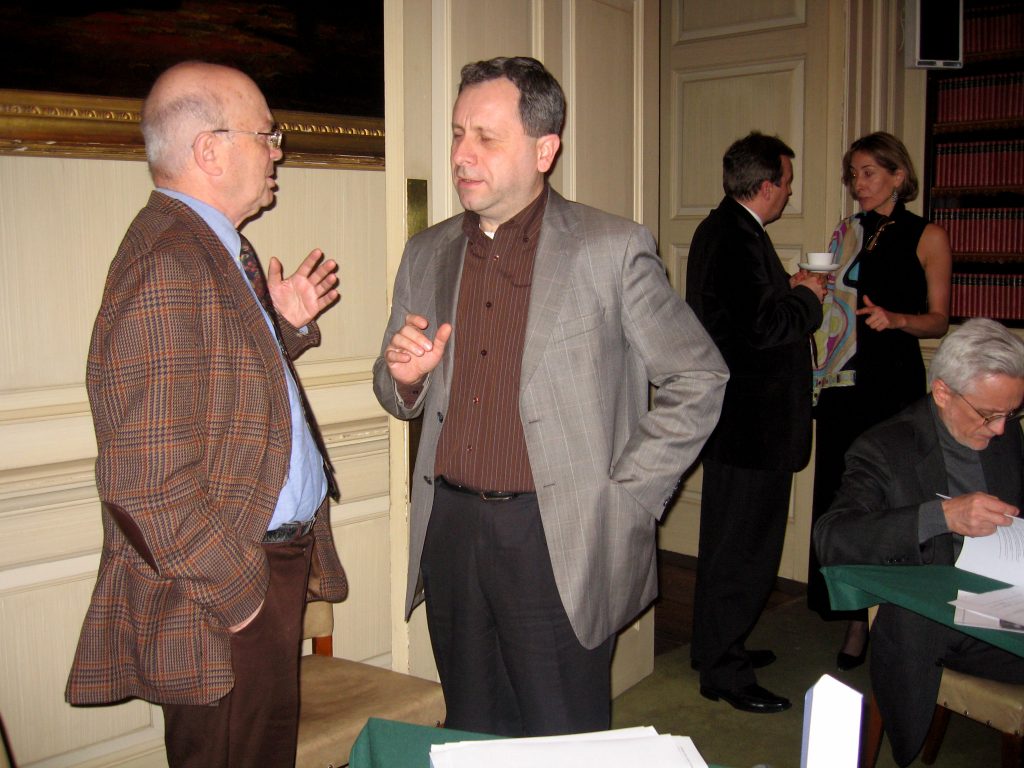
Importance was attached to choosing appropriate venues. We selected those conducive to reflection and bonding, to fostering formal discussion and informal exchanges among participants, and to building trust — essential for addressing difficult issues together and advancing opportunities for continuing investigation of issues needing further attention and engagement.
Roundtable discussions to date have covered the period from the sixteenth century to 1991, framing the Ukrainian-Jewish relationship in the context of centuries of co-existence and interaction, including with other ethnic groups, under successive regimes, and in different regions, in the social, economic, political and cultural spheres. Discussants paid particular attention to the roles played by various states in which the stateless Ukrainian and stateless Jewish peoples co-existed. Given the purpose and nature of the project, considerable attention was paid to the more controversial moments and aspects of the shared history, especially those around which dominant stereotypes have developed in Jewish and Ukrainian historiography, culture, and popular memory. Discussions explored such flashpoints, focusing on what happened (the record of events, according to historians with acknowledged expertise on the particular periods), why (the causes and motivations), and their impact on Ukrainian-Jewish relations (the consequences).
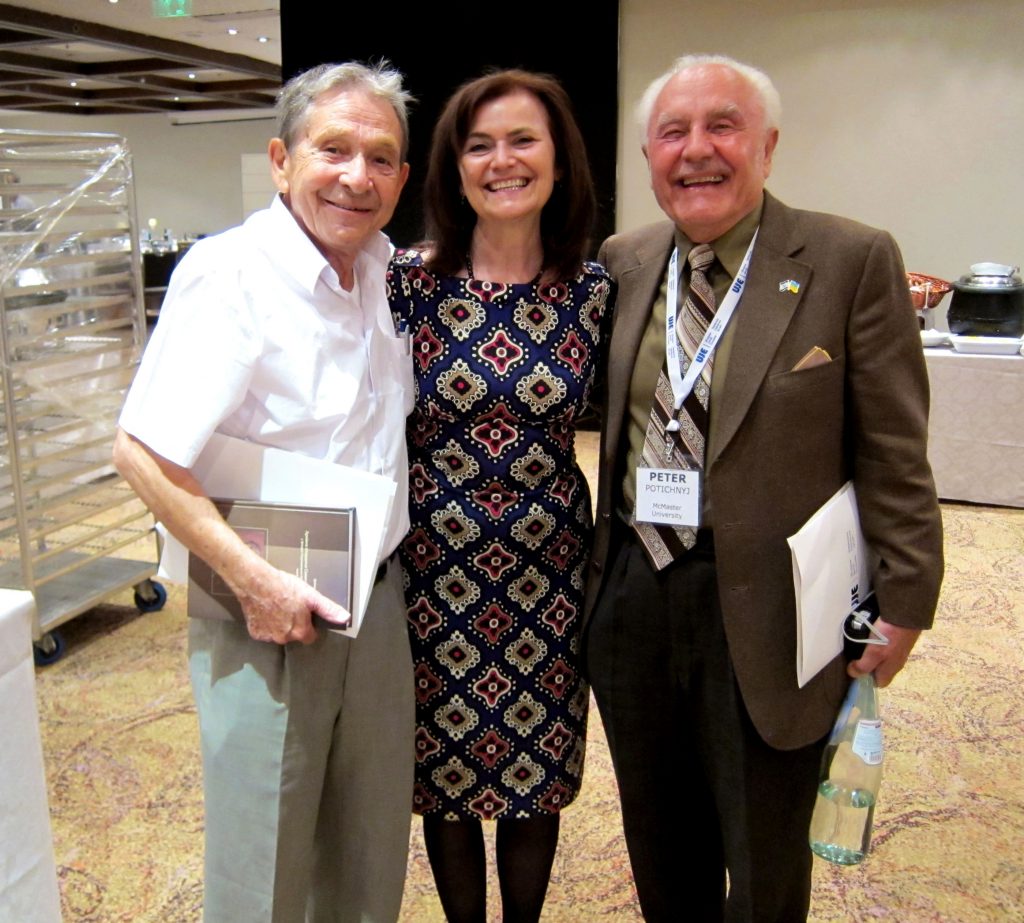
At the same time, the roundtables also treated topics relating to Ukrainian-Jewish cooperation, positive relations, and cultural interaction over long periods of normalcy. In addition, as part of the Shared Historical Narrative project, UJE organized a conference focused entirely on culture, held in October 2010 in Jerusalem, in partnership with the Israel Museum and the Hebrew University. That conference ("Cultural Interaction, Representation, and Memory") was dedicated to cross-cultural influences in various domains, including music, art, architecture, language, literature, and folklore, though treating, as well, mutual stereotypes embedded in the respective literatures and folklores.
As the objective of the roundtables was to benefit from and build upon existing authoritative scholarship, acknowledged experts were invited to present not new and original contributions but rather synoptic overviews of the state of knowledge regarding the particular topics, and to include recommendations for further exploration and research. Open discussion among the participants followed these overview presentations, deepening and expanding perspectives on the topics. To capture the rich discussion and facilitate its integration in a "shared narrative," the proceedings were recorded, transcribed, and summarized in point-form "records of discussion," which were then validated with the participants.
A draft shared narrative has been prepared on the SHN roundtables to date, based on the validated records of discussion, supplemented by findings drawn from research and writing produced or recommended by the participants. For the narrative to be accepted as truly "shared" (initially within the expert/scholarly community), a process of review and challenge has been devised, first, for validation by the participants in the discussions, then by designated reviewers and a wider network of expert historians.
Topics treated at the SHN Roundtables to date
The first experts' roundtable, held in June 2009 in Salzburg at the Schloss Leopoldskron (in association with the Salzburg Global Seminar), addressed issues in Ukrainian-Jewish history and relations from the sixteenth century to World War I. Issues treated include aspects of daily co-existence and economic contacts, as well as instances of inter-ethnic tension and violence in the Polish-Lithuanian Commonwealth, such as the massacres of Jews during the 1648–1649 anti-Polish uprising led by Bohdan Khmelnytsky, and again in 1768 during the Haidamaka (Koliivshchyna) rebellion. These events figure prominently, but so differently, in the historical memory of Ukrainians and Jews (and Poles). Other topics treated include the influential, early nineteenth-century, quasi-historical account, Istoriia Rusov (The History of the Rus' People), regarded as the primary source of negative Jewish stereotypes that penetrated the Ukrainian national awakening and popular culture; Ukrainian-Jewish relations in Galicia in the context of modernization and economic history; and the experience of Jews and Ukrainians during World War I. Particular attention was given to the earlier phase of the revolutionary era, including the period of remarkable Jewish-Ukrainian political cooperation in the Central Rada during the short-lived Ukrainian National Republic established in 1917.
The second roundtable, in December 2009 at Ditchley Park in the UK, focused on the interwar period, beginning with the story of Jewish-Ukrainian political cooperation in the West Ukrainian People's Republic (1918–1919), followed by discussion of the 1918–1919 pogroms and the "Petliura Question" in relation to the pogroms. Positive aspects of Jewish-Ukrainian relations in Galicia were set in context, including Jewish support for the Ukrainian side (even while officially declaring neutrality) in the Polish-Ukrainian conflict, and Jewish relief aid extended to non-Jewish Ukrainians in the 1921–1923 famine. Other consequential topics addressed included the thrust and impact of Soviet nationalities policy on Jews, Ukrainians, and Ukrainian-Jewish relations; the opening of vocational and educational opportunities for Jews in Soviet Ukraine, at the same time as traditional Jewish culture and institutions were being suppressed; the emergence and exploitation of the zhydokomuna motif in the shifting political developments and tropes of the period, particularly in western Ukraine; the phenomenon of Jewish agricultural colonies in the 1920s–30s; the Holodomor, as experienced by Ukrainians and Jews, and its impact on Ukrainian-Jewish relations; the Great Terror of 1937–38 from the perspective of Ukrainian-Jewish relations; and the role of antisemitism in the discourse and political strategy of radicalized Ukrainian nationalist circles in western Ukraine in the 1930s under Polish rule.
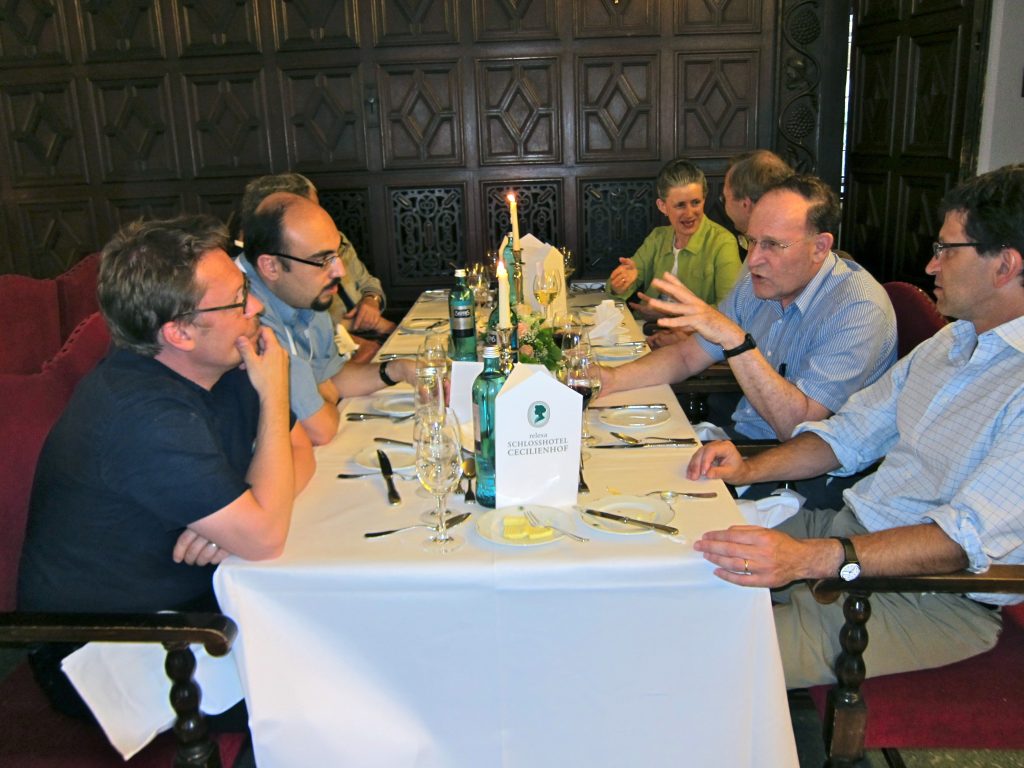
The third roundtable, organized in association with Germany's Konrad Adenauer Stiftung, was held in Potsdam and Berlin in June 2011, coinciding with the 70th anniversary of the launch of Operation Barbarossa. This roundtable treated the most complex and painful aspects of the Ukrainian-Jewish experience, relating to World War II and the Holocaust on the territory of Ukraine. Thirty-seven scholars participated, along with leading German political and Ukrainian and Jewish civic leaders. Topics addressed include the 1939–1941 Soviet occupation of western Ukraine (including the NKVD prison murders and the 1941 pogroms); the credibility and use of evidentiary sources (written, oral and other); the Holocaust in German-occupied Ukrainian territories and in the Romanian- and Hungarian-occupied Ukrainian territories of Bukovina and Transcarpathia; the mass murder of civilians and POWs in the "Bloodlands" under Stalin and Hitler; the mass shootings of the Jews of Kyiv and others at Babyn Yar and numerous other locations in Ukraine; and collaboration (nature, types, scale, and motivations). Participants addressed the issue of collaboration in the broader context of experience in other countries under German occupation and in the specific Ukrainian context, including complicity in atrocities by Ukrainian nationalist militias (OUN and UPA), Ukrainians in German military formations and auxiliary police, and the phenomenon of double and triple collaboration under changing regimes and conditions.
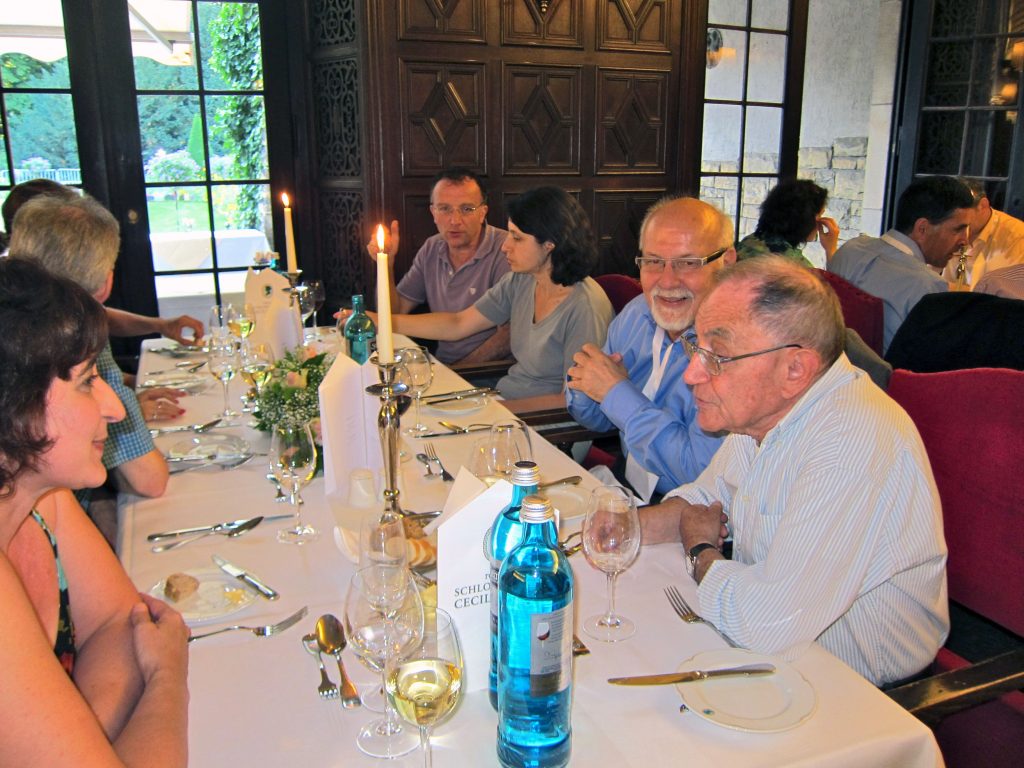
Other important topics addressed at this roundtable include the rescue and sheltering of Jews (scale, numbers, motivations, moral dimensions, the recognition of saviours, and problematic cases), and the particular case of Metropolitan Sheptytsky; resistance, insurgency and counter-insurgency, 1943–1947; and broader aspects of the war, including centrally the brutality of the Nazi occupation and its treatment of the non-Jewish populations, including forced labour and displacement — topics that generally receive less attention than they deserve.
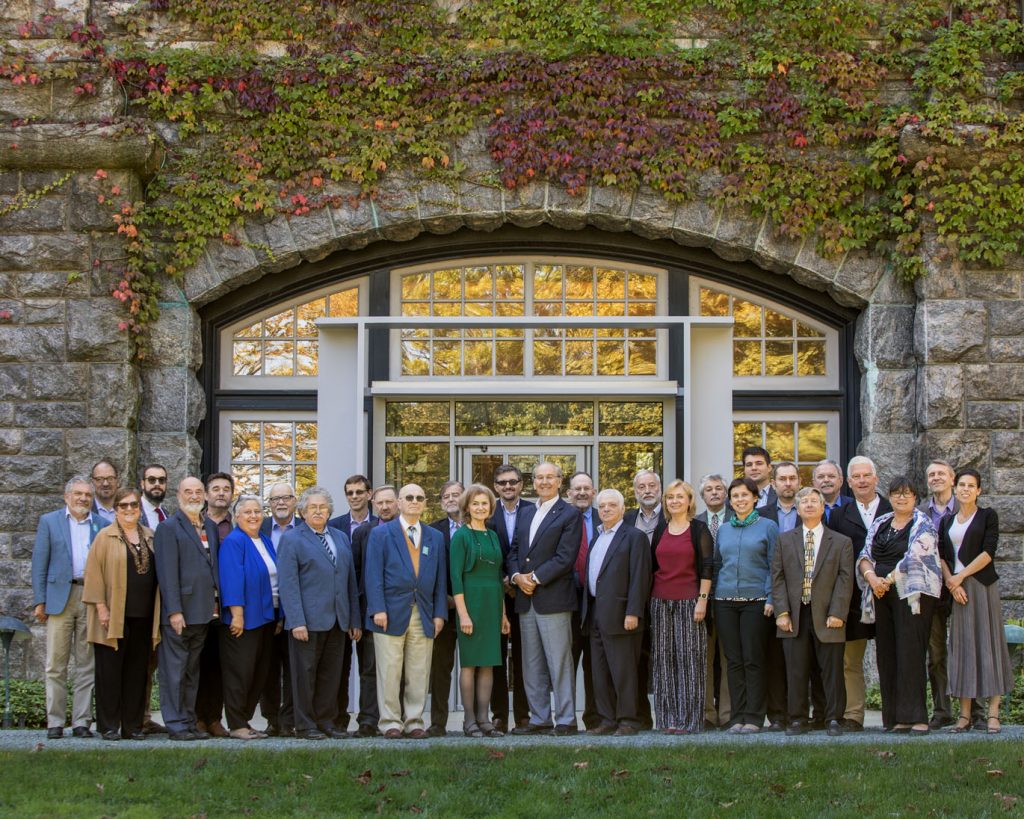
The most recent UJE experts' roundtable, held at the Rockefeller Estate/Pocantico Center outside New York City in October 2017, treated issues relating to the postwar Soviet period up to Ukraine's independence in 1991. This period was marked by the re-imposition of the Soviet order after the war and its impact on Jews and Ukrainians and their relationships with each other, including the mutual engagement of Jewish and Ukrainian dissidents in the struggle for respect for their human rights. Twenty-five scholars/experts from Ukraine, North America, Israel, and Europe addressed a range of themes, including the Soviet Union's treatment of (and suppression of information about) the Holocaust and the Holodomor; war crimes trials and the propagation of the Patriotic War and "friendship of peoples" motifs; the anti-Jewish and anti-Ukrainian campaigns of late Stalinism; impacts of the establishment and career of the State of Israel; cooperation between Ukrainian and Jewish activists/dissidents in the Gulag, as well as between their respective supporters in the West. Other topics treated include the large-scale emigration of Jews from the Soviet Union (including Ukraine importantly) in 1968–1991; factors that contributed to Ukrainian-Jewish solidarity on the road to Ukrainian independence in the late 1980s; cooperation in memorialization endeavours; and interaction in various cultural domains, literary in particular.
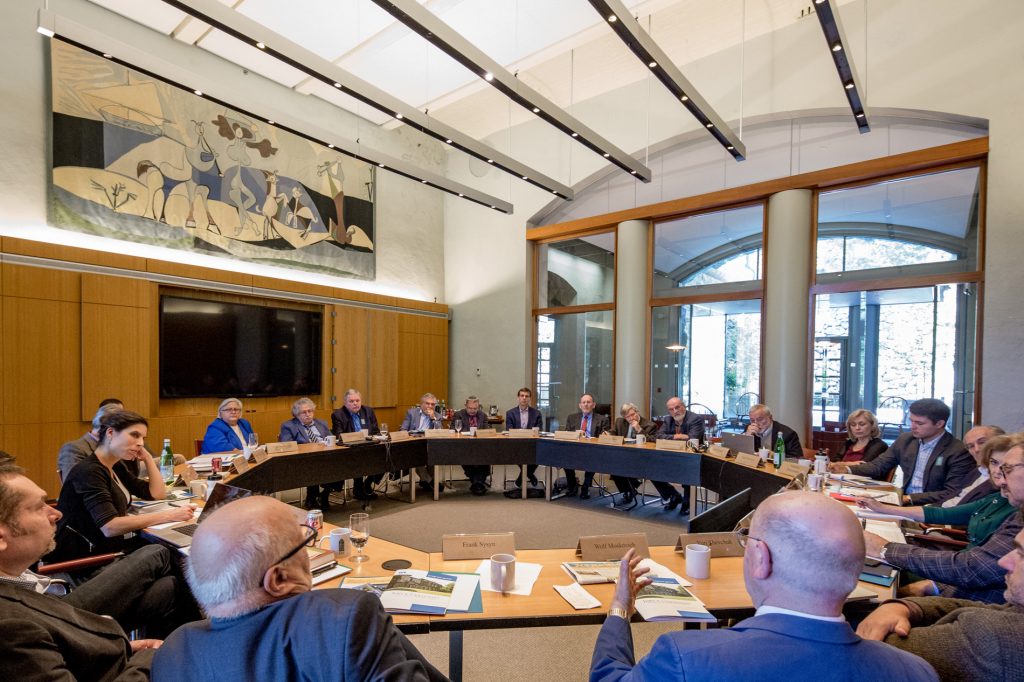
Two additional roundtables remain to be scheduled, one on the post-1991 period and a concluding overview roundtable — to validate UJE's updated shared historical narrative, to reflect on issues relating to history and memory, and to discuss future directions. Therefore it would be premature to publicize as in any way definitive the results of the shared narrative roundtable discussions at this point.
Which issues in the shared historical narrative cause the most debate among historians? What are their core points?
With very few exceptions, there was minimal divergence of views among the participants in the SHN roundtables. Always in a collegial spirit, discussion following the overview presentations added nuance and context rather than contesting the basic findings regarding the state of knowledge on the particular topics. Issues that generated particular debate at the roundtables on the interwar period related to the stance of the Jews of Lviv during the Ukrainian-Polish war of 1919 (mentioned above); the role and significance variously attributed to Jews in the severe Soviet repression during the Holodomor and the Great Terror; characterization of anti-Jewish violence in Western Ukraine in 1941; the complicity of Ukrainian police and nationalist militias in the Holocaust; and the historical validity of Soviet documentation. Though addressing painful topics, there was broad consensus among expert historians on the historical evidence regarding these topics.
Which other difficulties arise in developing a shared historical narrative?
One of the challenges faced in developing a shared narrative is the tension between authoritative scholarly work and "national" narratives that have become entrenched in significant segments of communities and beyond. The fact that both Jews and Ukrainians experienced gross violations of fundamental human rights, massive violence, and deep trauma in the twentieth century has added considerable emotional baggage to these national narratives. As a result, some historians, working to document and preserve the memory of injustices suffered by their own group, become selective in what they include in their accounts, taking less note of the suffering of other groups or the problematic behaviours of members of their own group.
Another set of challenges derives from the many layers of myth-building and revisionism that distort understanding of the past. In addition to the internal narratives of the two communities, Jewish and Ukrainian, one still has to contend with vestiges of the broader interwar zhydocomuna motif, which became core to the wartime Nazi propaganda that branded Jews collectively as Bolsheviks. Then came five decades of postwar Soviet revisionist history — including suppression of the memory of Soviet crimes in the 1930s, in particular in the Holodomor, and eliding over the two years following the 1939 Molotov-Ribbentrop Pact, which paved the way for Nazi Germany, in alliance with Soviet Russia, to launch World War II, dismember Poland, and initiate the Holocaust. Soviet revisionist memory policy suppressed the specific targeting of Jews for genocide, submerging their identities in the category of "peaceful Soviet citizens." It also tended to exclude discussion of the degree to which Soviet functionaries and citizens in various Soviet republics collaborated in the Nazi occupation, so as not to disturb the postwar Soviet order being re-established and not to undermine the myth of a united Soviet population defending the honour of the fatherland.
Then, driven by a variety of 'nation-building' motivations, new trends in revisionist history took shape after 1991 in countries emerging from the Soviet order, including laws regarding the treatment of history and state-mandated historical narratives. Ukraine has not been immune to revisionist history, both as a proponent and a target — especially in the context of Russia's antipathy to Ukrainian independence and its current "hybrid war" against Ukraine.
Tell us please briefly about the main current results/achievements of the project? Which products were created through the implementation of the project "Shared Historical Narrative"?
A key achievement is the emergence of a networked international community of respected scholars and thought leaders as a product of the UJE roundtables, focused on issues that have shaped and continue to affect Ukrainian-Jewish relations. Their personal interaction in settings conducive to fellowship, reflection and dialogue has facilitated building trust in addressing complex and sometimes difficult issues together.
A multi-volume draft of UJE's shared historical narrative text, based on roundtables to date, currently exists. It is a work in progress, as the review and validation process continues and two further roundtables are needed to bring the project up to the present.
Meanwhile, work has proceeded — in tandem with and inspired by the foundation of scholarship laid by the SHN project — in developing products accessible at the level of communities and wider audiences. These include UJE's museum exhibits and associated exhibit materials and publications, and web-based products, such as the illustrated historical timeline, mentioned earlier.
Recently, I was the coordinator of a project related to analyzing Ukrainian school history textbooks. The results of the analysis showed that in most textbooks the history of Jews is represented sporadically, often in the context of violence against them. Simultaneously, they contain very little historical material about the social life and culture of Jews in Ukrainian lands. Do you see the opportunities for the integration of developments within the project "Shared Historical Narrative" to school history education in Ukraine?
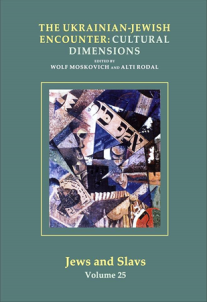
Regarding social life and culture, I mentioned earlier the UJE conference held in Jerusalem, which focused on the cultural dimensions of the Ukrainian-Jewish encounter, including cross-cultural influences in music, art, architecture, language, literature, and folklore. UJE has sponsored the publication of a collection of essays based on presentations delivered at this conference in a special volume of the journal Jews and Slavs in 2016; parts of this publication may provide interesting content suitable for Ukrainian high school history education.
In addition, UJE's illustrated online Historical Timeline, which showcases the long shared history of Ukrainians and Jews, allows visitors to zero in on the economic, social, and cultural dimensions of the encounter (separately from the political history), including the multifaceted social and cultural life of Jews on Ukrainian lands.
Perhaps the most important way in which the SHN project might contribute to school history education in Ukraine is by providing educators and authors of history texts for Ukrainian schools with an authoritative account of the history of the Ukrainian-Jewish encounter, which, to repeat, is supported by widely respected historians from both within and outside Ukraine. While the focus of the SHN roundtables was more on contentious aspects of the encounter and on times of crisis, a special effort was made not to lose sight of the many high points in cooperative relations and ordinary co-existence, as well as cultural interaction over long periods of normalcy.
Other UJE products inspired by and related to the shared narrative, which may contribute to curriculum development and programming of history teaching in Ukrainian schools, include a travelling exhibit, A Journey Through the Ukrainian-Jewish Encounter, which tells the story of the encounter from antiquity to 1939 and a companion catalogue to this exhibit. Volume 1 of the catalogue (which takes the story to 1914) is accessible on the UJE website in both English and Ukrainian. Volume II of the catalogue, treating the period from 1914 to the present, is currently in preparation.
Also supported by UJE and available in Ukrainian libraries is the independent publication, Jews and Ukrainians: A Millennium of Co-existence, co-authored by Professors Paul Robert Magocsi and Yohanan Petrovsky-Shtern.

Please share your project plans for the future.
As mentioned earlier, two additional roundtables remain to be scheduled, one on the post-1991 period, and a concluding roundtable to discuss the completed draft narrative and reflect on issues relating to history and memory.
A condensed single-volume version of the multi-volume shared narrative will likely be prepared after the completed SHN draft text is validated by a team of authoritative historians.
The completed SHN text will serve as a foundation for updating the contents of the travelling exhibit, the companion catalogue, and the historical timeline, bringing the story up to the present in all three products.
To treat unresolved issues identified during the roundtable meetings, UJE would consider sponsoring panels at scholarly conferences to address specific topics identified as needing further investigation.
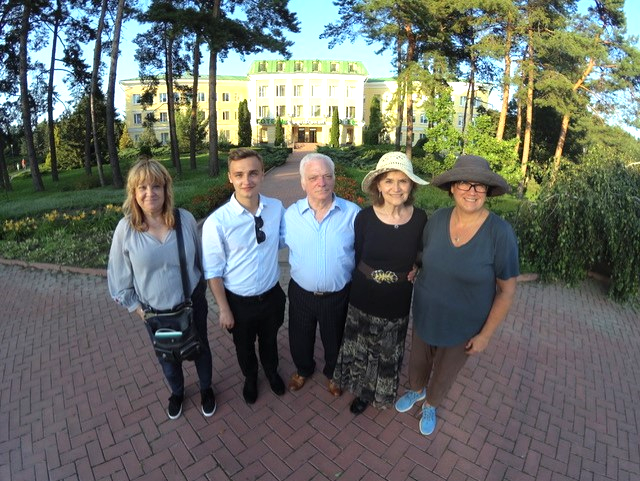
Questions on the history of the Holodomor and the Holocaust
During the second and third roundtable meetings (held at Ditchley Park in the UK in December 2009 and in Potsdam, Germany in June 2011), questions of the history of the Holocaust and the Holodomor were addressed. Have you been focusing on the history of these genocides within the project?
Issues relating to the Holodomor, primarily from the perspective of Ukrainian-Jewish relations, were discussed at the Ditchley Park Roundtable on the interwar period. To provide needed context, the draft SHN chapter dedicated to the Holodomor begins with a brief introductory account of Soviet collectivization policy, its implementation, impacts, and consequences. This account highlights the distinct ethno-political dimension of the famine — that the overwhelming majority of the nearly four million victims of the Holodomor were peasants and most peasants were ethnic Ukrainians. Mention is included of the many Jewish collective farmers and residents of the shtetls who also starved and died.
The chapter also discusses Raphael Lemkin's role in originating the concept of genocide as a special category of international crime and in designating the Holodomor as a genocide, and the current debate among scholars regarding this designation. Other aspects discussed include the problem of using such terms as the "Ukrainian Holocaust" for the Holodomor, the political dynamics in independent Ukraine and in the diaspora in fostering awareness of the Holodomor, and the sometime attribution of responsibility for the Holodomor to Jews. As an example of such attribution, the roundtable participants discussed the mid-2000s antisemitic discourse disseminated by the state-accredited institution MAUP and a few prominent personalities, which generated an open letter signed by a significant segment of the Ukrainian intelligentsia condemning such discourse.
Chapters of the SHN draft narrative focus on aspects of the Holocaust in the various regions — in German-occupied Ukrainian lands and in territories occupied by Romania and Hungary, regions that are today part of Ukraine. Two chapters treat the topic of World War II on Ukrainian lands more broadly, including civilian and POW deaths, collaboration, complicity, and resistance. One chapter is dedicated to sheltering and rescuing Jews during the Holocaust in Ukraine, including initiatives to recognize Ukrainian rescuers.
What is the UJE position on the controversial and painful issues of Ukrainian-Jewish relations during the Holocaust?
One should not speak of a generic "UJE position" on these issues, except to say again that UJE works to build, gain acceptance for and disseminate a truthful, integrated, and empathetic account of our shared history, including of its painful aspects, eschewing distortion, minimization, or relativization. I believe that truth and empathetic understanding of the traumas experienced by both Jews and Ukrainians fosters healing. Distortion has the opposite effect. Understanding should encompass an appreciation of the specific genocidal nature of the Holocaust, which aimed at the murder of each and every Jew and the uprooting of all vestiges of Jewish culture, community and memory. The specific experience of Jews does not in any way diminish appreciation of Ukraine's enormous losses — some 5 million non-Jewish Ukrainians perished as a consequence of the Nazi war and occupation.
Attempts at distortion or selectivity about the history in the light of political agendas are also increasingly unsustainable as a new generation of scholars — Ukrainian, Jewish and other — is at work in archives, and accessing testimonies and the extensive scholarship on the shared history. The reality today is that knowledge about the painful issues has crossed ethnic, political and linguistic boundaries.
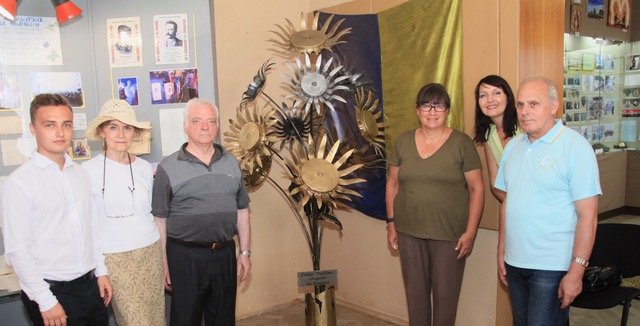
What needs to be done to achieve Ukrainian-Jewish reconciliation regarding the painful pages of Holocaust history? Could the Shared Historical Narrative project play some role in this process of reconciliation?
I prefer other terms than 'reconciliation' — there is no conflict or hostility today between Jews and Ukrainians that would call for reconciliation. Nor is this generation of Ukrainians responsible for events 80 years ago.
However, the memory of those (and other) events is alive and has real effects today. I believe that we are responsible for how these events are remembered, for the respectful commemoration of the victims, and for learning from what actually happened.
What I imagine you mean by "reconciliation" in the contemporary Ukrainian-Jewish context is recognition, appreciation, deeper understanding of the shared history, dispelling harmful stereotypes, and establishing mutual empathy and trust in the present. I believe the route to achieving reconciliation in this sense is through full and unstinting acknowledgement of the past, including its painful aspects. Eminent philosopher Charles Taylor echoed this belief in his remarks at the opening of UJE's travelling exhibit in Montreal a few years ago, when he said: "partial truths will keep us divided; only the deep, whole truth can bring reconciliation."
I hope and believe that UJE's shared narrative project will advance a deeper, empathetic understanding of the shared history among Jews and Ukrainians.
I take encouragement from what one sees in a new generation of Ukrainian scholars and in the pages of Ukraina Moderna and other publications over the past fifteen years, giving voice to a search for an authentic connection to the past and an aspiration for a future it will help shape.
Interview conducted by Petro Dolhanov
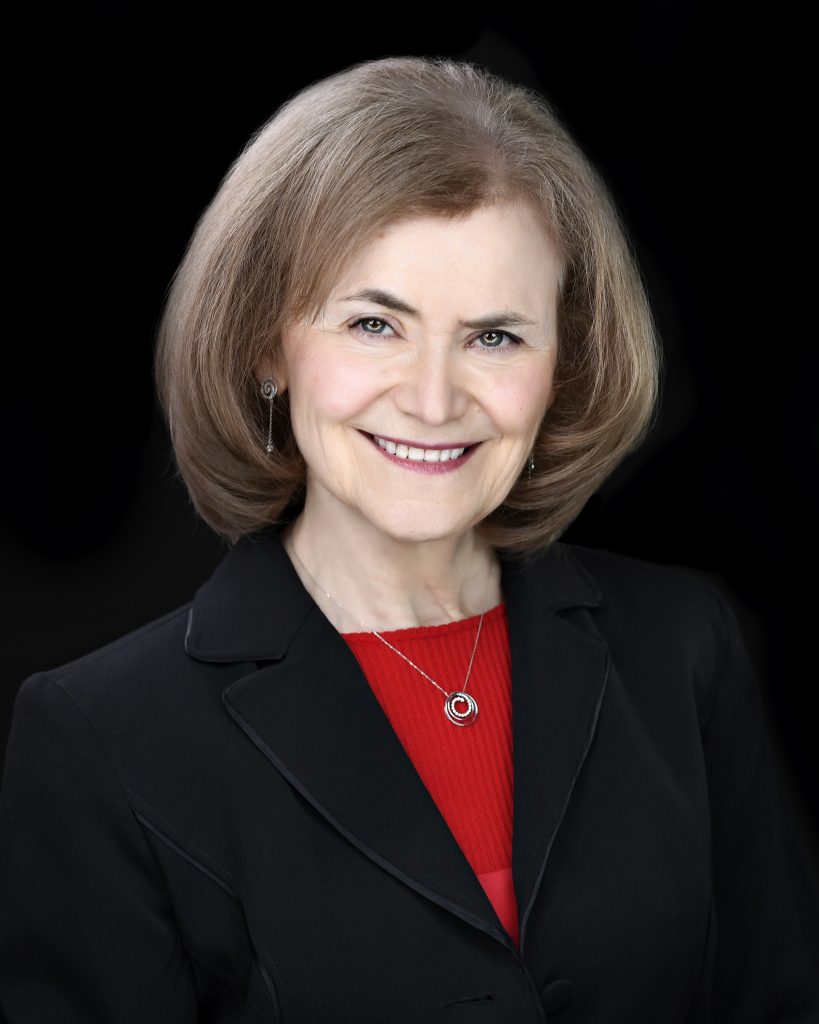 Alti Rodal is a founder and Co-Director of the Ukrainian Jewish Encounter. She is a historian, writer, former professor of Jewish history, and former official and advisor to the Government of Canada. Born in Chernivtsi (Czernowitz) in Ukraine, she received her early schooling in Israel. She was educated at McGill, Oxford and Hebrew universities in the fields of history and literature. Her professional experience includes teaching at universities in Montreal, Ottawa, and Oxford; research and writing, under academic, policy institute, governmental, and other auspices; and senior advisory and management experience with the Government in Canada, including the Privy Council Office/Cabinet Office and Royal Commissions (including as Director of Historical Research for the Commission of Inquiry on Nazi War Criminals in Canada). She is the author of a variety of studies and reports for government, as well as scholarly and other writing on aspects of identity, Jewish history and culture, inter-communal relations, and public policy.
Alti Rodal is a founder and Co-Director of the Ukrainian Jewish Encounter. She is a historian, writer, former professor of Jewish history, and former official and advisor to the Government of Canada. Born in Chernivtsi (Czernowitz) in Ukraine, she received her early schooling in Israel. She was educated at McGill, Oxford and Hebrew universities in the fields of history and literature. Her professional experience includes teaching at universities in Montreal, Ottawa, and Oxford; research and writing, under academic, policy institute, governmental, and other auspices; and senior advisory and management experience with the Government in Canada, including the Privy Council Office/Cabinet Office and Royal Commissions (including as Director of Historical Research for the Commission of Inquiry on Nazi War Criminals in Canada). She is the author of a variety of studies and reports for government, as well as scholarly and other writing on aspects of identity, Jewish history and culture, inter-communal relations, and public policy.
Originally appeared in Ukrainian @Ukraina Moderna
This article was published as part of a project supported by the Canadian non-profit charitable organization Ukrainian Jewish Encounter.







